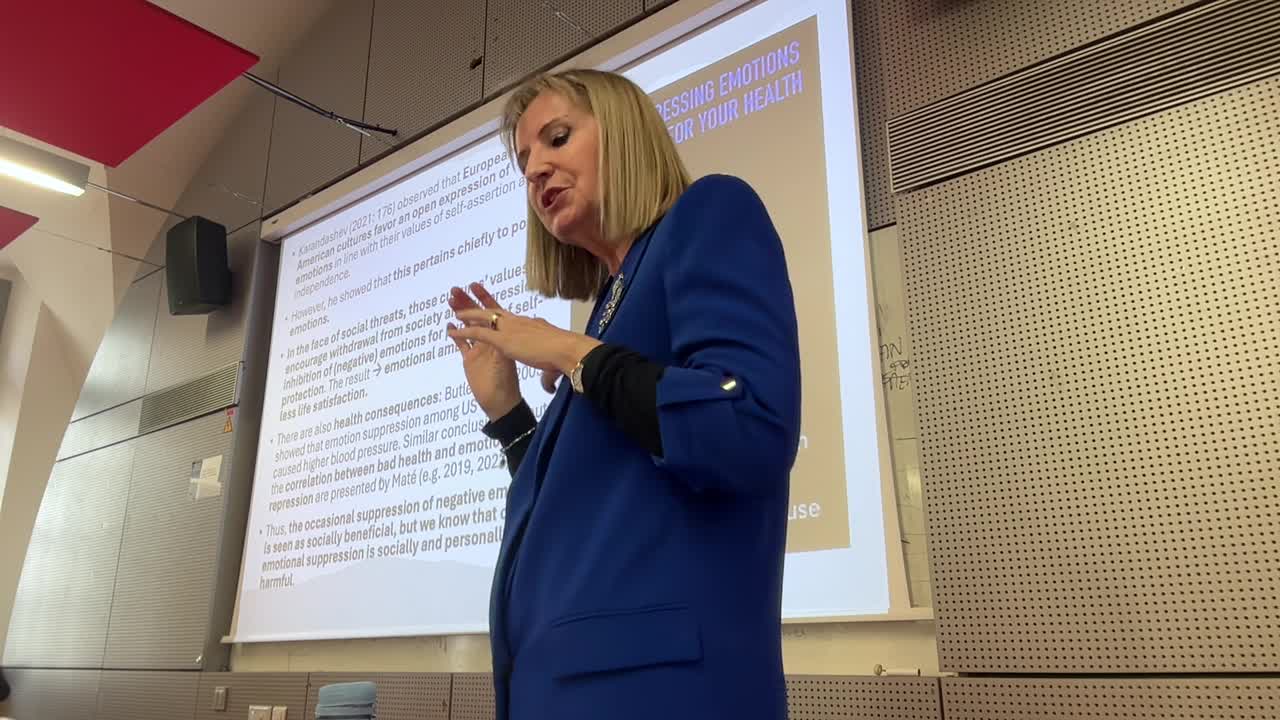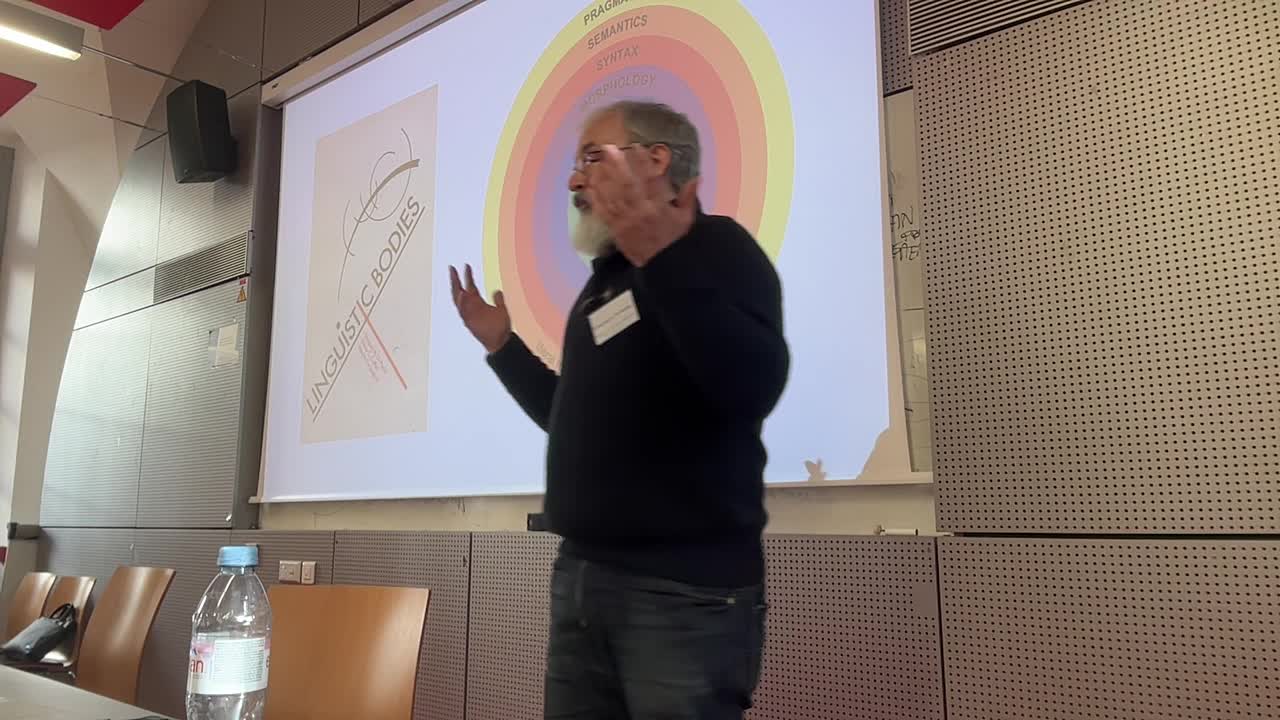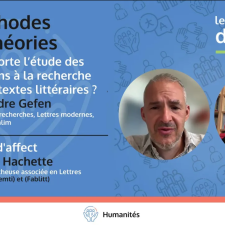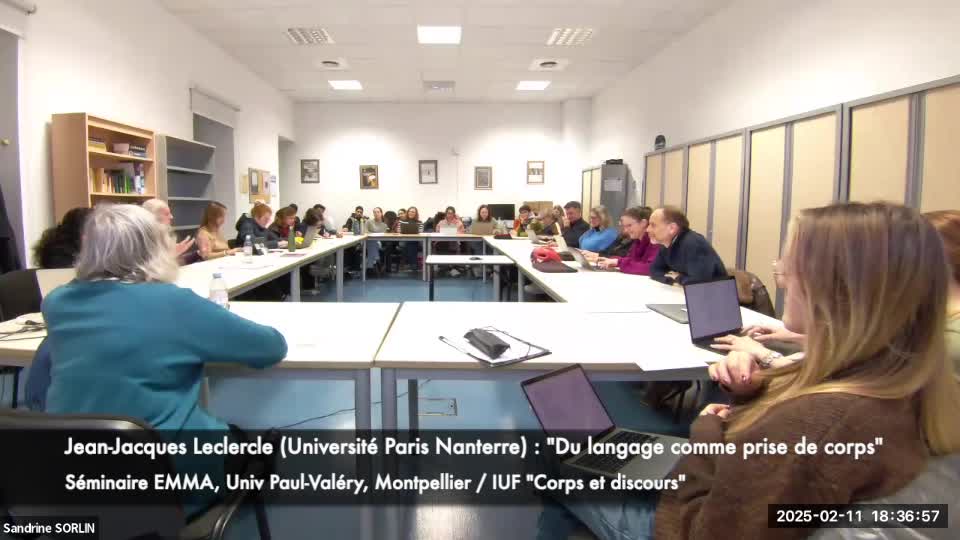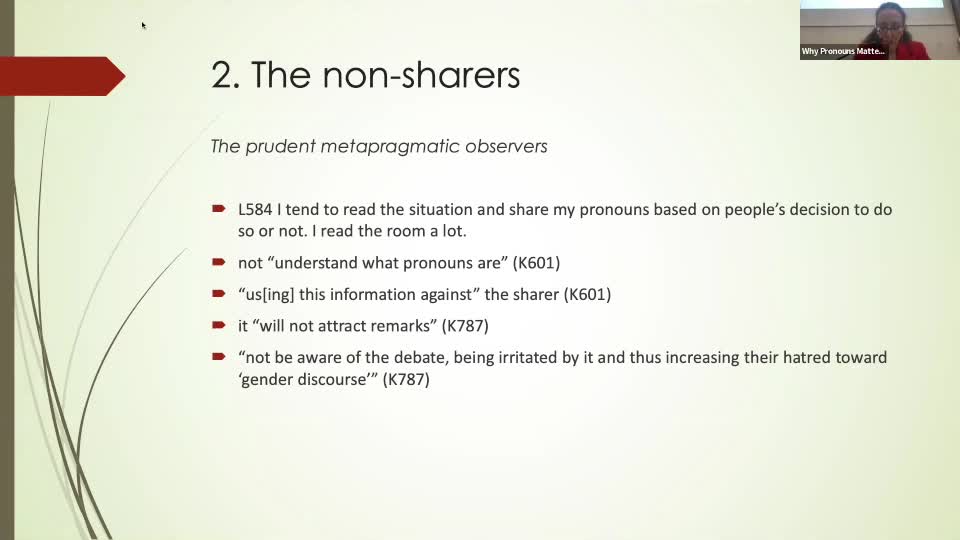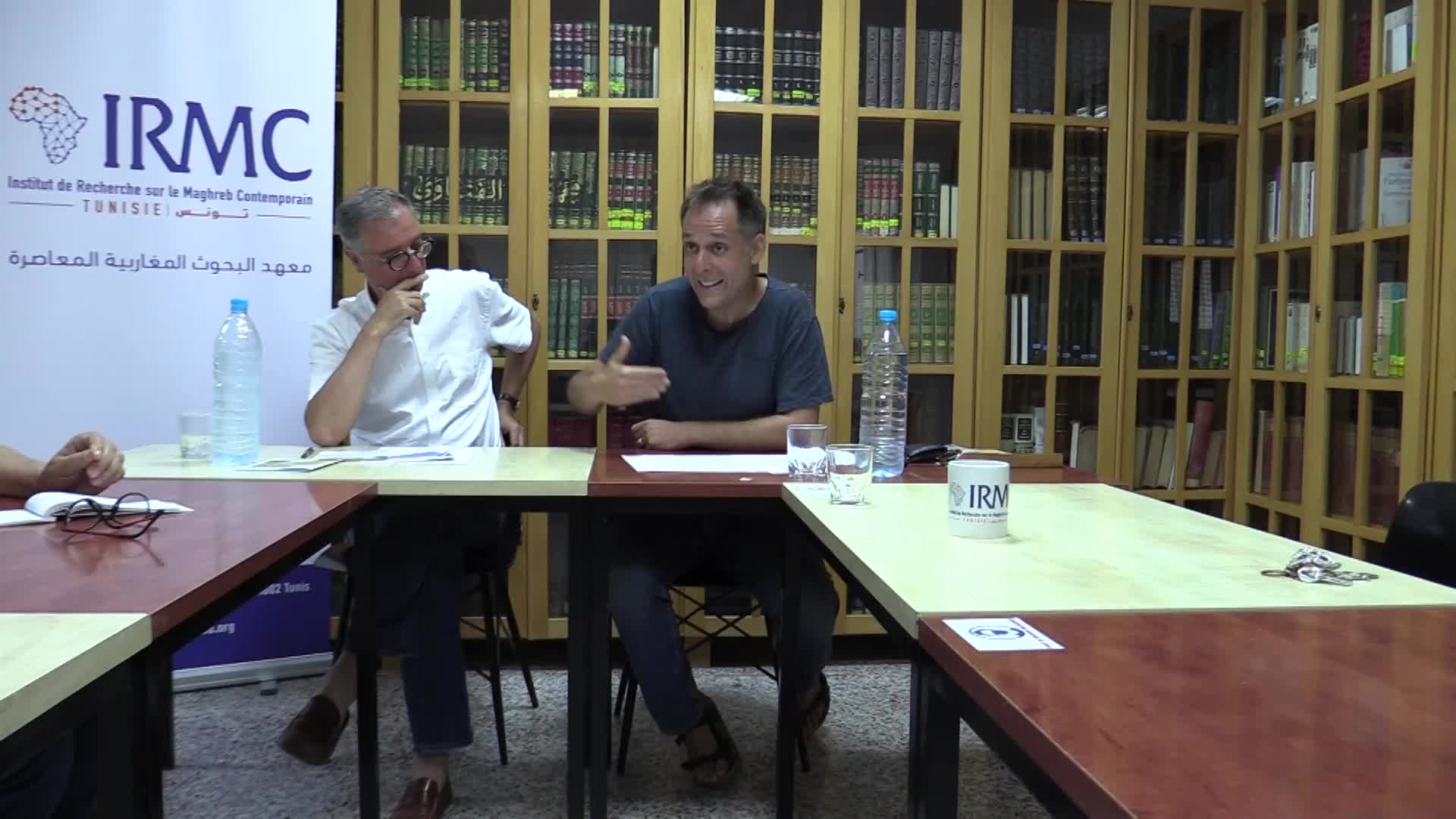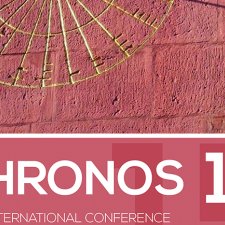Notice
The Embodied Performance of Right-Wing Populism
- document 1 document 2 document 3
- niveau 1 niveau 2 niveau 3
Descriptif
Right wing populism (RWP) is defined as both an ideology and as a communicative style (de Vreese et al. 2018). As a communicative style, RWP transgresses the normative conventions of political discourse (Aiolfi 2022). This extends to the multimodal, embodied performance of RWP where right-wing populist politicians are noted for their “strong corporeal presence” (Moffitt 2016: 52) and for being overly “corporeally demonstrative” (Lowndes 2017: 236). Of Donald Trump in particular, Hall, Goldstein and Ingram (2016: 83) observe that he “violates many of the normative bodily standards of presidential propriety expected for the political stage”. In the case of Donald Trump, marked corporeal presence is manifested in his frequent use of pointing and shrugging gestures (among other kinesic routines).
In this talk, I draw on frameworks for the study of co-speech gesture developed in cognitive linguistics (e.g. Cienki 2022) to discuss the forms and functions of pointing and shrugging gestures in the spoken performances of Donald Trump. In both cases, video footage of live campaign rallies held during the 2016 primaries is analysed. Pointing gestures directed inward, outward, upward and downward are shown to co-occur with different semantic and grammatical categories of speech and, as part of multimodal utterances, to perform various social-indexical and rhetorical functions characteristic of RWP. Shrug gestures are shown to take various forms with the most frequent making expansive use of the gesture space in a way normally associated with live entertainment rather than politics. Shrugs are shown to function as stance-taking acts in two domains, the epistemic and the affective, where they again serve in the multimodal realisation of rhetorical strategies associated with RWP.
Dans la même collection
-
"I’ll never call him dad again": Emotional inferences and embodiment in the Giselle Pélicot sexual …
Alba-JuezLauraThis talk presents a sociopragmatic analysis of the inferences and emotional embodiment that emerge in an interview conducted by Oprah Winfrey with Caroline Darian, daughter of Giselle Pélicot, a
-
The historicity of linguistic bodies
Di PaoloEzequiel A.In this talk, I overview the broad assumptions and central ideas of the enactive approach to language, sketch the dialectical methodology that enables us to move from broad forms of participatory
Sur le même thème
-
"I’ll never call him dad again": Emotional inferences and embodiment in the Giselle Pélicot sexual …
Alba-JuezLauraThis talk presents a sociopragmatic analysis of the inferences and emotional embodiment that emerge in an interview conducted by Oprah Winfrey with Caroline Darian, daughter of Giselle Pélicot, a
-
The historicity of linguistic bodies
Di PaoloEzequiel A.In this talk, I overview the broad assumptions and central ideas of the enactive approach to language, sketch the dialectical methodology that enables us to move from broad forms of participatory
-
-
Les Rendez-vous du Savoir des Humanités - Méthodes et théories #1 et #2
HachettePaulineGefenAlexandreSylvosFrançoiseLes Rendez-vous du Savoir des Humanités - Méthodes et théories #1 et #2
-
"Du langage comme prise de corps", Jean-Jacques Lecercle, Université Paris Nanterre
LecercleJean-JacquesOn distinguera cinq corps et cinq prises de corps par le langage. On en tirera des conséquences pour une conception du langage non comme simple instrument de communication mais comme milieu de
-
“What’s in a pronoun and how does it matter?: From the perspective of pragmatics”, Sandrine Sorlin,…
SorlinSandrineIn this talk, I wish to give a quick overview of the quite recent ‘pronoun sharing’ trend from a linguistic and pragmatic perspective, going through the new collocations and semantic shifts of the
-
Conférence “Penser le populisme : une nouvelle approche socio- génétique”
BoissevainKatiaTarragoniFedericoMellitiImedL’IRMC invite le sociologue Federico Tarragoni (Université Paris-Diderot), qui présente une conférence intitulée « Penser le populisme : une nouvelle approche socio-génétique » coordonnée par Imed
-
Co-reference in (linguistic-)pictorial discourse
AltshulerDanielThis talk takes up the question of how one arrives at pragmatic interpretations of pictorial and mixed linguistic-pictorial discourses.
-
Existe-t-il un éco-populisme ?
Dans le contexte de la montée croissante des extrêmes droites, de plus en plus de travaux pointent l'émergence d'un "populisme environnemental" (green populism) ou d'un "éco-populisme" définis à
-
L'universalité de la norme démocratique à l'épreuve
Ben AchourYadhWahnichSophieAvonDominiqueBessisSophieCompagnonAntoineFrouvilleOlivier deMohsen-FinanKhadijaHachemaouiMohammedGendreau-MassalouxMichèleLahlouSaadiRousseauDominiqueSaadaKathyTroperMichelYaredHyamZuberValentinePour défendre la démocratie et la faire échapper au relativisme dans lequel veulent l’emprisonner tous ses adversaires, il est impératif de l’examiner en tant que Norme et lui trouver un fondement
-
Conférence de Jean-Yves Camus Populisme(s) et xénophobie(s) en Europe
Directeur de l'Observatoire des radicalités politiques de la Fondation Jean Jaurès, chercheur rattaché à l'IRIS (Institut des Relations Internationales et Stratégiques), senior Fellow au Centre for
-
Comprendre le populisme - intervention de Raphaël Liogier
SurelYvesLiogierRaphaëlPremière partie de l'intervention - Raphael Liogier


